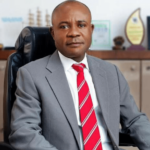“Africa can take full advantage of the global complexities we see today and indeed thrive in the face of the uncertainties and disruption through knowledgeable leadership which is committed to good governance.”
This was the submission of Vice President Yemi Osinbajo at a public lecture delivered on Monday evening at the King’s College, London.
In the lecture entitled “Africa Can Prosper in an Increasingly Complex World”, Prof. Osinbajo stated that if he was asked what would determine Africa’s ability to turn the problems and complexities of the continent and our world around for good, “I will say knowledgeable leadership committed to good governance.”
The Vice President spoke to a large audience comprising academics, scholars, researchers, faculty and students of the Africa Leadership Centre (ALC) in a packed lecture hall at the prestigious King’s College. His audience included Professor Rachel Mills, the College’s Senior Vice President (Academics); Professor Funmi Olonisakin, Vice President (International Engagement & Service), who moderated a Question and Answer session after the lecture, and Professor Abiodun Alao, a notable Professor of African Studies based in the College.
Also accompanying the VP to the public lecture were senior government officials led by Nigeria’s High Commissioner to the United Kingdom, Ambassador Sarafa Tunji Isola.
The VP’s lecture detailed and interpreted issues such as climate change crisis, the Russian-Ukrainian war, terrorism etc, and noted that in today’s world “we live in a complex and somewhat confusing times. The lines have never been more blurred in the various conceptual prisms through which we view the world.”
The Vice President added the existence of several centres of political and economic power since the unipolar world of the 1990s has meant that there are various ways in which global developments are viewed.
According to him “in addition to the United States, we now have China, Russia, the European Union, the United Kingdom, India and Brazil as dominant regional powers. The perspectives, decisions and actions of these actors impact not only in their regions but across the world including in multilateral forums.”
Speaking specifically on the ongoing Russian-Ukrainian conflict, Prof. Osinbajo said “apart from its consequences for international peace and security, the war has signalled a breakdown of the global order which emerged at the end of the Second World War and is a source of concern to many African countries who now have to steer their way delicately between major powers. But the more immediate and consequential fallout of the war are the sharp hikes in food, especially wheat, sunflower oil, fuel and fertilizer prices.”
He noted “many African countries are heavily dependent on one or both of the warring parties for food and oil. When the conflict began in February last year, the price of wheat increased by 67% from December 2021. Oil prices similarly went through the roof. The international price of oil averaged $100 per barrel in 2022 as compared to about $70 per barrel in 2021. Given that some of the key manufacturing countries are oil importers, higher oil prices invariably translated to higher prices for manufactured products as well.
“These price shocks and disruption of supply chains of various commodities across Africa led to high inflation at a time when most countries were struggling to overcome the economic and social fallouts of the COVID-19 pandemic especially debt and foreign currency crises. The situation was relieved somewhat by the deal that was brokered to enable the export of Ukrainian wheat.”
On Nigeria’s position in the conflict, the VP stated that “despite our strong objection to the invasion of Ukraine as evidenced by our support for the UN resolution condemning the invasion, we have managed to maintain good relationships with both parties. We are now in the process of working out a grain supply from Russia coordinated by the World Food Programme, and we recently accepted to provide port space in Port Harcourt, Nigeria for the distribution of grain from Ukraine to other west African countries.”
The Vice President observed that the Russia-Ukraine war had made some African countries like Zimbabwe to look inward, and then stated that “the economic fall out of the war for us in Africa should be an introspective moment on the issue of self sufficiency in food production.”
He however, commended amongst other efforts to resolve the crisis, the recent peace proposal by the President of Brazil saying “President Luiz Lula Da Silva of Brazil proposed a peace club probably led by China to seek ways of ending the crisis. I think that sort of thinking is the way to go. The world must find parties that can be trusted by both sides to intervene”.
On the global climate crisis which has also polarized the world, the Vice President averred that it is “central to current global complexities.”
According to him “just a few days ago, the Intergovernmental Panel on Climate Change (IPCC) released a report cautioning that if speedy actions are not taken global warming might attain 1.5°C much earlier than expected even possibly in the 2030s.
“This is a worrying prospect if we consider that African countries, despite being the least emitters of carbon, are the worst hit by its effects and the least capable of quickly responding to or mitigating the damage caused by extreme weather events. At the same time, a competition for increasingly scarce resources such as water and arable land is fueling conflict and complicating tensions between communities.”




